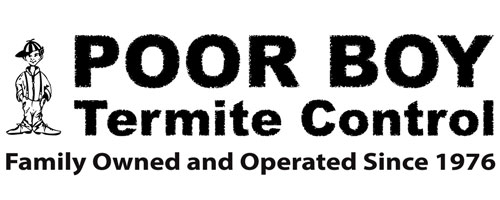Termites are destructive pests that can wreak havoc on both your home and garden. Unfortunately, some types of mulch create the perfect environment that allows termites to survive and thrive. Let’s look at some warning signs that there may be termite activity in your mulch.
WHY ARE TERMITES ATTRACTED TO MULCH?
There is evidence to support the link between mulch and termite activity. This is due to the fact that mulch will keep the environment moist. Moisture is great for growing flowers, shrubs, and trees, which is why so many homeowners add it to their landscape. Termites, unfortunately, also crave this moisture, as do a variety of other insects and bugs.
The moist environment will encourage termites to ultimately explore the area by digging thin tunnels and searching for food. Mulch provides the shelter for their exploration. So while termites might not actually consume mulch, the mere presence of it can create ideal conditions for a termite colony.
One way to look at the termite attraction issue would be to conclude that mulch will increase their ability to survive around your home, especially if they are already present. Mulch won’t necessarily attract the termites, but it can serve as an open invitation to eventually feast on your home.
Warning Signs Of Termites In Mulch
It’s crucial to be able to identify termite presence in your mulch. Early identification can address the problem before it creates more significant issues. Here are a few signs that termites are present in your mulch:
- Swarms: Termites will form swarms to reproduce and ultimately establish new colonies. If you happen to notice a swarm of winged insects around your mulch, this is a clear indication of termite infestation.
- Mud Tubes: Termites utilize these small tubes made of wood, soil, and saliva in order to protect their colony from predators. To do this properly, they need a moist environment. You can check the mulch and the surrounding area of your home’s foundation for mud tubes.
- Frass: Frass is a term that is used to describe termite droppings. The droppings will look like small pellets. Frass found near your mulch is a sign of termite presence.
HOW TO PREVENT TERMITES IN MULCH
There are some steps you can take to try to reduce the risk of termite activity, including the following ways:
- Moisture control: Try to avoid overwatering the mulch beds, ensuring proper drainage around the property to prevent an excess of moisture.
- Proper mulch application: Apply the mulch in a thin layer, no more than 2-3 inches deep. Keep the mulch at least 1 foot away from your home’s foundation.
- Best planting spots: Do not plant trees or shrubs to close to your home.
- Mulch replacement: Replace the mulch periodically, at least once per year. This can reduce the buildup of decomposed material that may attract termites.
- Termite inspections: Have regular termite inspections performed by the professionals. They can check the areas for mud tubes and damaged wood.
- Structural precautions: Seal any gaps or cracks in the foundation to prevent any entry points.
Misconceptions About Termites In Mulch
There are a few common misconceptions about termite activity in mulch that can result in ineffective prevention strategies. For example, termites can infiltrate more than just wood mulch. Termites are also attracted to mulch made of plant fibers.
Termites can also infest bagged mulch, especially when the bags are stored in a moist environment. Mulch bags that have been punctured are very at-risk of infestation.
TERMITE CONTROL PHOENIX METRO AREA
Poor Boy Termite Control can solve all of you termite issues. We only deal with termites as the name implies. We use thermal imaging, with no drilling or guessing. At Poor Boy Termite Control we detect termites and treat them. If you have a termite infestation, Call Poor Boy Termite Control at (480) 994-4240 and schedule an appointment before the problem gets worse!






